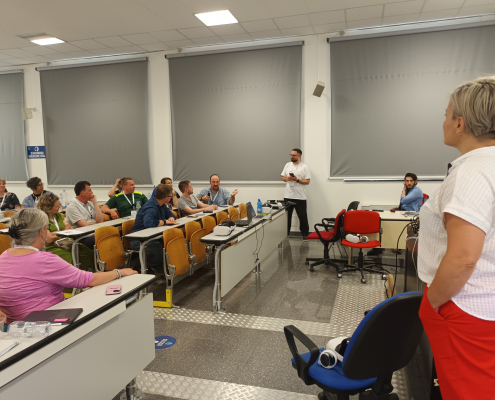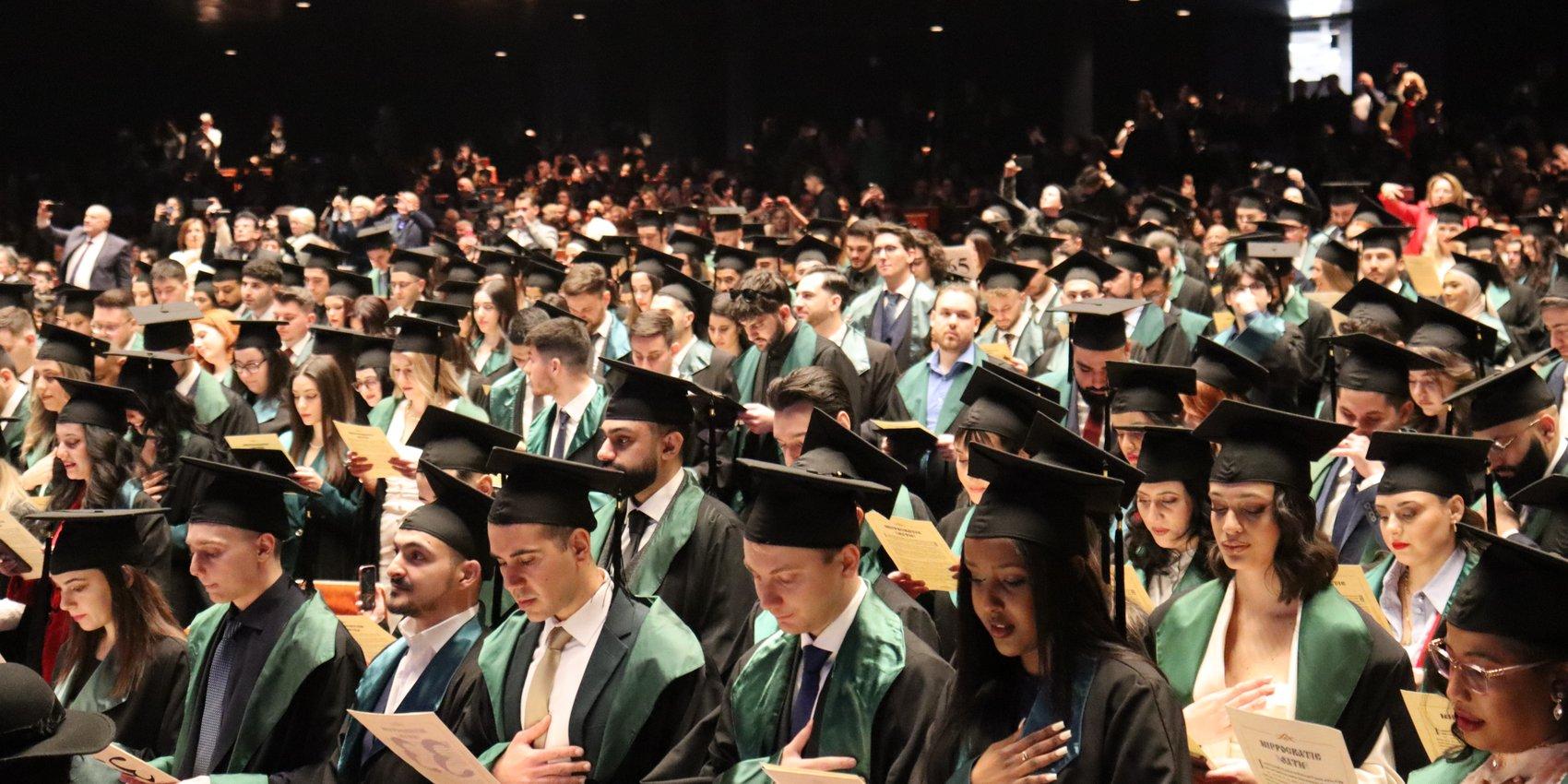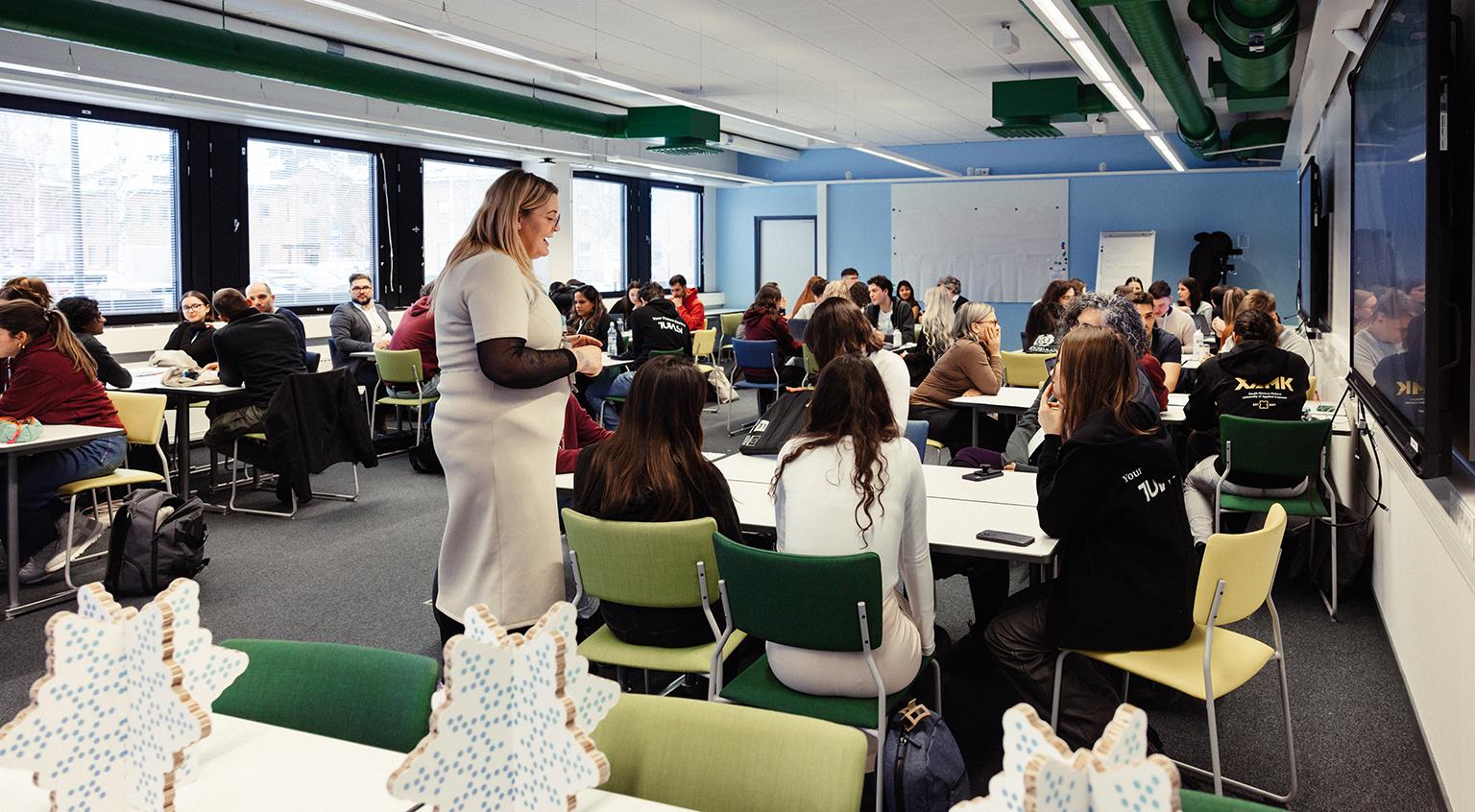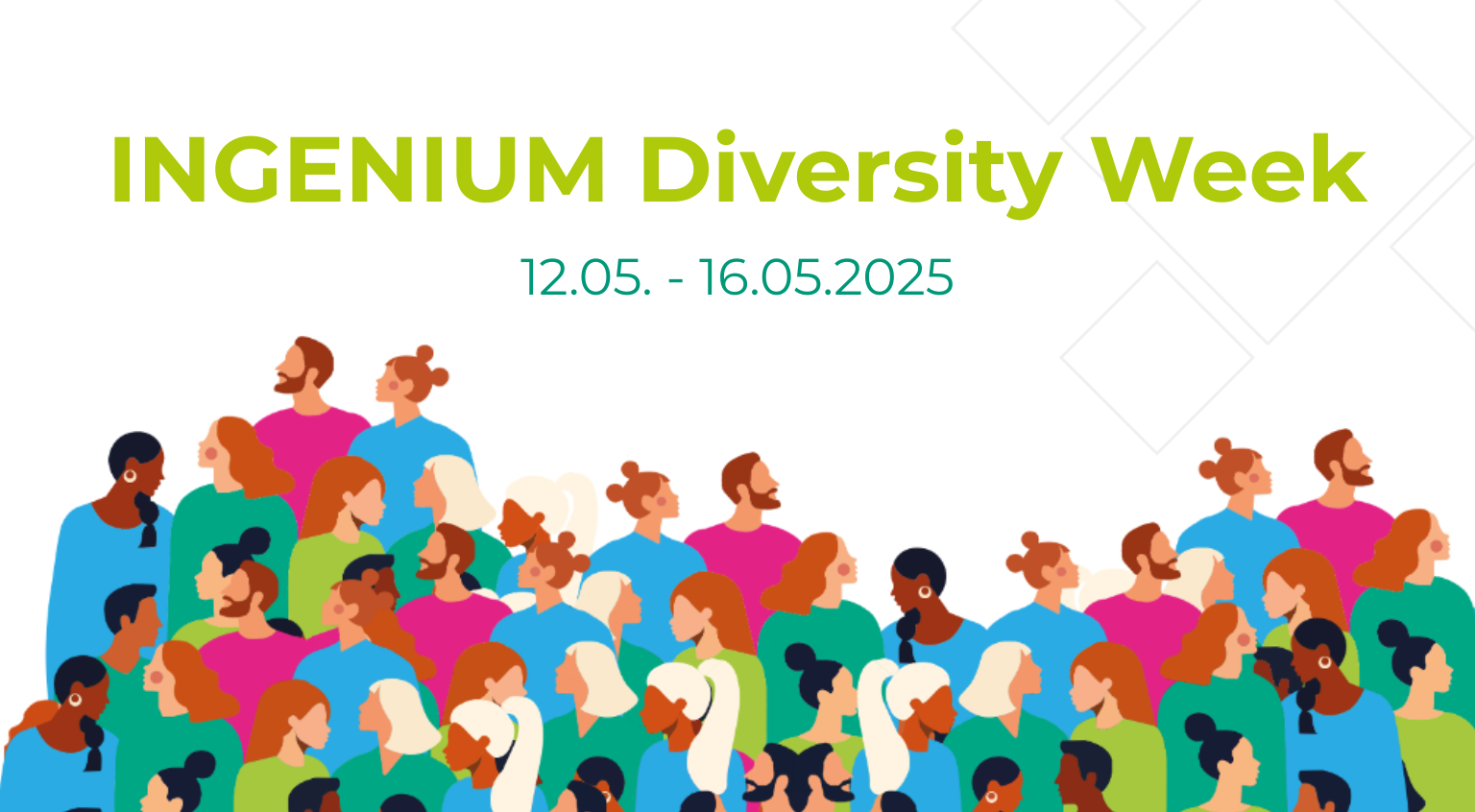INGENIUM Staff Academy
Staff Academy workshops allow participants to gain and enhance their teaching and facilitation skills by providing additional time for hands-on learning and interaction with colleagues from diverse backgrounds and fields. It will also provide an appropriate framework for knowledge sharing and
transfer, offer new networking opportunities, and open avenues for enhanced cooperation with the Alliance.
Staff Academy is held twice a year. Each event will be hosted by one of the Alliance Universities within the 10 Days of INGENIUM framework.
In 2024, these events will be held by the University of Crete (UoC) from 5-9 February 2024, and at the Gheorghe Asachi Technical University of Iasi (TUIASI) from May 20-24, 2024.
Contribute your knowledge, skills, and innovative pedagogical approaches. Submit your idea, and let’s share, learn, and connect together!
Call for Proposals
What sort of applications we would like to see?
What innovative teaching methods, pedagogical practices, or case studies have you implemented in your teaching or would you like to develop further? What lectures, seminars, or classes have you taught that have been well-received by students and have improved their learning outcomes? What would be a
good best practice to share with the alliance partners?
But what makes a proposal innovative and engaging? Here are some thoughts:
- It is interactive – well-received sessions have deep learning objectives wrapped in an engaging and inviting package to encourage fellow participants to explore the topic.
- It is topical and adaptable – to be broadly useful, proposals should fit with a wide range of learning programmes and be useful across sectors.
- It is inspirational and thought-provoking – some proposals will be most interesting through case studies and how easily they can be replicated by attendees in their context.
Priority will be given to proposals focusing on:
- Effective student-centred learning equips students with knowledge and other professional and personal development skills. For example, collaborative learning, flipped classrooms, creative teaching methods, and reflective assessment.
- Connecting research, education, and working life promptly utilises research findings in education, bringing education and research closer together through challenge-based, work-based, and other methodologies. For example, simulations based on cutting-edge research, innovative work placements or internships, or new pedagogical theory or practice advances.
- Blended learning, or hybrid teaching, combines traditional classroom-based education with other innovative learning methodologies, including distance, digital, or work-based learning. This might include, for example, online learning environments, digital tools, and good blended teaching practices.
We also welcome out-of-the-box proposals that do not fit within a single category or are interdisciplinary. Proposals should actively involve students and stakeholders in their development or implementation and include appropriate transfer strategies.
Submit your proposal by 30 November 2023
Please make sure to submit your proposal by 30 November 2023.
The INGENIUM Innovation Leaders will assess proposals, and the Staff Academy coordinators will inform you of their decision within 2-3 weeks.
If you have any questions or difficulties submitting, please get in touch with us at wp5@ingenium-web2.admin.uoc.gr.
Ensure that emails from wp5@ingenium-web2.admin.uoc.gr are part of your email’s “allow list” so you do not miss any future messages.
Evaluation Process ans Criteria for Applicants
The Innovation Leaders from INGENIUM partner universities will review their own applications. They will evaluate and select the top five applicants from their university for each Staff Academy event.
The top five applications from each institution will be evaluated again in a second round by the INGENIUM Community Evaluators. The INGENIUM Community Evaluators are Innovation Leaders and WP5 Coordinators from different universities.
- First Round: The INGENIUM Innovation Leaders will evaluate the proposals and choose the top 5 from their own university on the application platform.
- Second Round: The INGENIUM Community Evaluators will assess the proposals.
- The evaluators will choose one applicant from each Institution for each Staff Academy Event.
- The successful and rejected applicants will be informed via email shortly after the second round is completed.
Evaluation Criteria:
The evaluation criteria are thorough and provide a structured way to assess the quality of proposals. The criteria are broken down into specific aspects and rated on a scale, making the evaluation process more objective. These criteria are published with the call for paper as a PDF attachment so the applicants know how their proposals will be assessed. Key evaluation points include:
- Student-Centered Learning: Effectiveness, innovativeness, and the extent to which the proposal aligns with student-centered approaches.
- Research, Working Life, and Education Connection: The connection between research, education, and practical application, highlighting the usefulness of the proposal for professional development.
- Blended Learning: Effective use of modern learning environments, including open-source tools and session formats.
- Session Format: The level of interactivity, planning, and structure in the session, ensuring a dynamic learning experience.
- Reviewer’s Comments and Feedback: Space for reviewer comments allows for personalised feedback and suggestions to improve the proposal.
What sort of applications we would like to see?
What innovative teaching methods, pedagogical practices, or case studies have you implemented in your teaching or would you like to develop further? What lectures, seminars, or classes have you taught that have been well-received by students and have improved their learning outcomes? What would be a
good best practice to share with the alliance partners?
But what makes a proposal innovative and engaging? Here are some thoughts:
- It is interactive – well-received sessions have deep learning objectives wrapped in an engaging and inviting package to encourage fellow participants to explore the topic.
- It is topical and adaptable – to be broadly useful, proposals should fit with a wide range of learning programmes and be useful across sectors.
- It is inspirational and thought-provoking – some proposals will be most interesting through case studies and how easily they can be replicated by attendees in their context.
Priority will be given to proposals focusing on:
- Effective student-centred learning equips students with knowledge and other professional and personal development skills. For example, collaborative learning, flipped classrooms, creative teaching methods, and reflective assessment.
- Connecting research, education, and working life promptly utilises research findings in education, bringing education and research closer together through challenge-based, work-based, and other methodologies. For example, simulations based on cutting-edge research, innovative work placements or internships, or new pedagogical theory or practice advances.
- Blended learning, or hybrid teaching, combines traditional classroom-based education with other innovative learning methodologies, including distance, digital, or work-based learning. This might include, for example, online learning environments, digital tools, and good blended teaching practices.
We also welcome out-of-the-box proposals that do not fit within a single category or are interdisciplinary. Proposals should actively involve students and stakeholders in their development or implementation and include appropriate transfer strategies.
Please make sure to submit your proposal by 30 November 2023.
The INGENIUM Innovation Leaders will assess proposals, and the Staff Academy coordinators will inform you of their decision within 2-3 weeks.
If you have any questions or difficulties submitting, please get in touch with us at wp5@ingenium-web2.admin.uoc.gr.
Ensure that emails from wp5@ingenium-web2.admin.uoc.gr are part of your email’s “allow list” so you do not miss any future messages.
Evaluation process and criteria for applicants
The Innovation Leaders from INGENIUM partner universities will review their own applications. They will evaluate and select the top five applicants from their university for each Staff Academy event.
The top five applications from each institution will be evaluated again in a second round by the INGENIUM Community Evaluators. The INGENIUM Community Evaluators are Innovation Leaders and WP5 Coordinators from different universities.
- First Round: The INGENIUM Innovation Leaders will evaluate the proposals and choose the top 5 from their own university on the application platform.
- Second Round: The INGENIUM Community Evaluators will assess the proposals.
- The evaluators will choose one applicant from each Institution for each Staff Academy Event.
- The successful and rejected applicants will be informed via email shortly after the second round is completed.
Evaluation Criteria:
The evaluation criteria are thorough and provide a structured way to assess the quality of proposals. The criteria are broken down into specific aspects and rated on a scale, making the evaluation process more objective. These criteria are published with the call for paper as a PDF attachment so the applicants know how their proposals will be assessed. Key evaluation points include:
- Student-Centered Learning: Effectiveness, innovativeness, and the extent to which the proposal aligns with student-centered approaches.
- Research, Working Life, and Education Connection: The connection between research, education, and practical application, highlighting the usefulness of the proposal for professional development.
- Blended Learning: Effective use of modern learning environments, including open-source tools and session formats.
- Session Format: The level of interactivity, planning, and structure in the session, ensuring a dynamic learning experience.
- Reviewer’s Comments and Feedback: Space for reviewer comments allows for personalised feedback and suggestions to improve the proposal.
Events
Upcoming Events
Past Events



